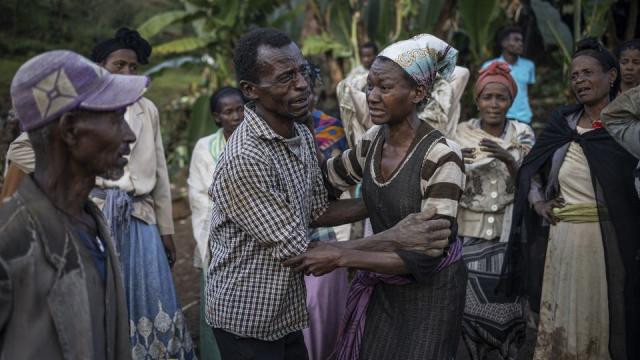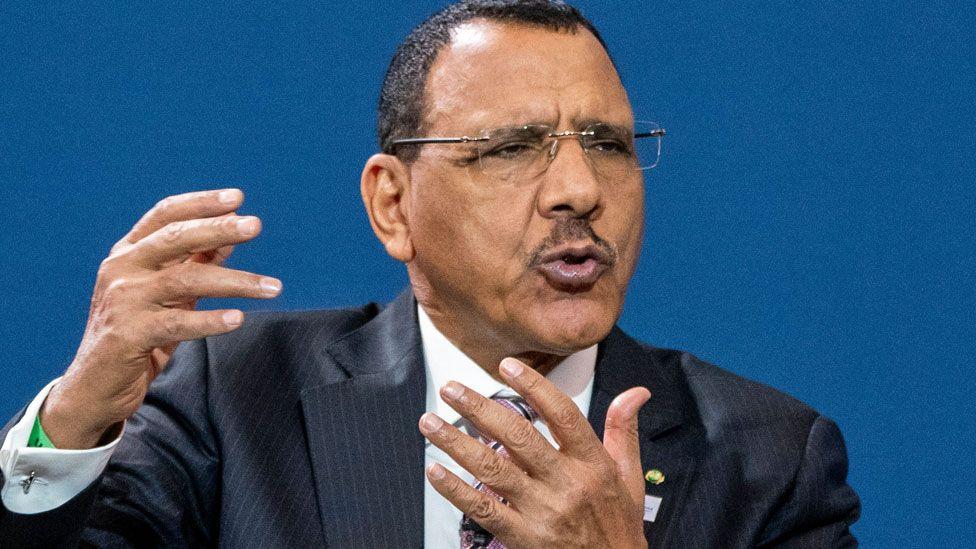
A wave of rolling blackouts has shaken the confidence of Egyptians, who had grown accustomed to a decade of stable power supplies, raising concerns about President Abdel Fattah al-Sisi’s performance just months before an upcoming election.
In addition to unprecedented inflation and a significant depreciation of the currency, the blackouts have emerged as a powerful indicator of the most severe economic turmoil Egypt has faced since Sisi assumed office in 2014, pledging stability and progress.
A former military leader who has implemented an extensive campaign against political opposition, Sisi is largely anticipated to secure a third term in the upcoming elections, projected to take place by early 2024, with the backing of the military and other security forces.
However, the nation’s economic difficulties have generated discontent among numerous Egyptians, who are witnessing a decline in their living conditions despite the government’s significant investments in large-scale projects.
“We forgot what a power cut was,” remarked Karim Mahrous, a resident of Al-Asmarat, a Cairo community of affordable housing established during Sisi’s tenure.
In this area, residents have experienced hour-long power cuts, a situation previously unfamiliar to them.
“When electricity goes off once or twice a day and other places do not even have power cuts that last a quarter of an hour, this is called injustice,” Karim said.
Power shortages have not posed a major issue since the unrest that followed the ousting of former President Hosni Mubarak during Egypt’s 2011 uprising.
During that period, frequent blackouts played a role in souring public sentiment against Egypt’s first democratically elected leader, Mohamed Mursi of the Muslim Brotherhood, prior to his removal in July 2013, led by Sisi.
History Repeating Itself
Critics of Sisi draw parallels between the current power cuts, which commenced in July and have followed a published schedule since the beginning of August, and the situation during Mursi’s era. Locals report that certain regions have borne a heavier brunt of these cuts, contributing to a growing perception of disparity.
“Power cuts are an indication of failure in economic policies and in management,” said Gameela Ismail, head of Al-Dostour party, one of several marginalized opposition groups trying to press for economic and political change.
“There is a big feeling of danger, because social stability and security are threatened,” she said.
Following 2014, Sisi acted swiftly to establish an excess of power generation capacity, constructing three massive gas-fired plants. His administration relied significantly on substantial financial backing from Gulf nations and international lenders based in the West.
The authorities argue that the load shedding became necessary due to a surge in electricity consumption driven by the exceptionally hot weather, primarily for air conditioning purposes.
Government officials have indicated that, in addition to hospitals and vital infrastructure, specific regions like the northern coastline and the Red Sea have been excluded from power cuts to safeguard the crucial tourism industry.
This sector serves as a significant foreign currency generator, which has become especially essential for Egypt following the unveiling of a chronic dollar shortage in the previous year.
Shock To The System
Analysts point out that the electricity shortages are further compounded by a decline in Egypt’s natural gas production, which fuels a significant portion of the country’s power grid.
The government, refuting claims that gas shortages were the cause behind the power cuts, began advocating for reduced electricity consumption last summer.
Since then, the government has been working vigorously to secure dollars through various strategies. As of August 14, one initiative involves granting Egyptians abroad a month to deposit funds into an Abu Dhabi bank account in exchange for exemption from military service.
Sisi has attributed the present economic challenges primarily to external factors, citing the impact of the global COVID-19 pandemic and the ripple effects of the conflict in Ukraine.
“Yes, the Egyptian economy suffers from crises and problems which impacted citizens and their livelihoods, but who doesn’t?” pro-Sisi member of parliament Mostafa Bakry said in an interview.
“We can solve these crises gradually and the Egyptian people can bear the burden.”
Investment in public construction projects has contributed to maintaining economic growth and has facilitated the swift development of the transportation infrastructure, particularly the road network.
However, experts argue that the pervasive influence of the military has hindered the implementation of necessary reforms, and the escalating debt load raises apprehensions about the nation’s financial stability.
Large-scale initiatives such as the construction of a new capital city near Cairo and a summer capital in El Alamein on the refreshing northern coast, where the affluent class typically resides during the hottest months, have also ignited public dissatisfaction.
In the meantime, numerous Egyptians voice their grievances that life has grown more challenging due to subsidy alterations, taxation, and surging costs.
“Things were much better in the past – there is a huge difference,” said Mohamed Ibrahim, a civil servant living in Al-Asmarat, lamenting a sharp rise in the cost of cigarettes since Mubarak’s time.




